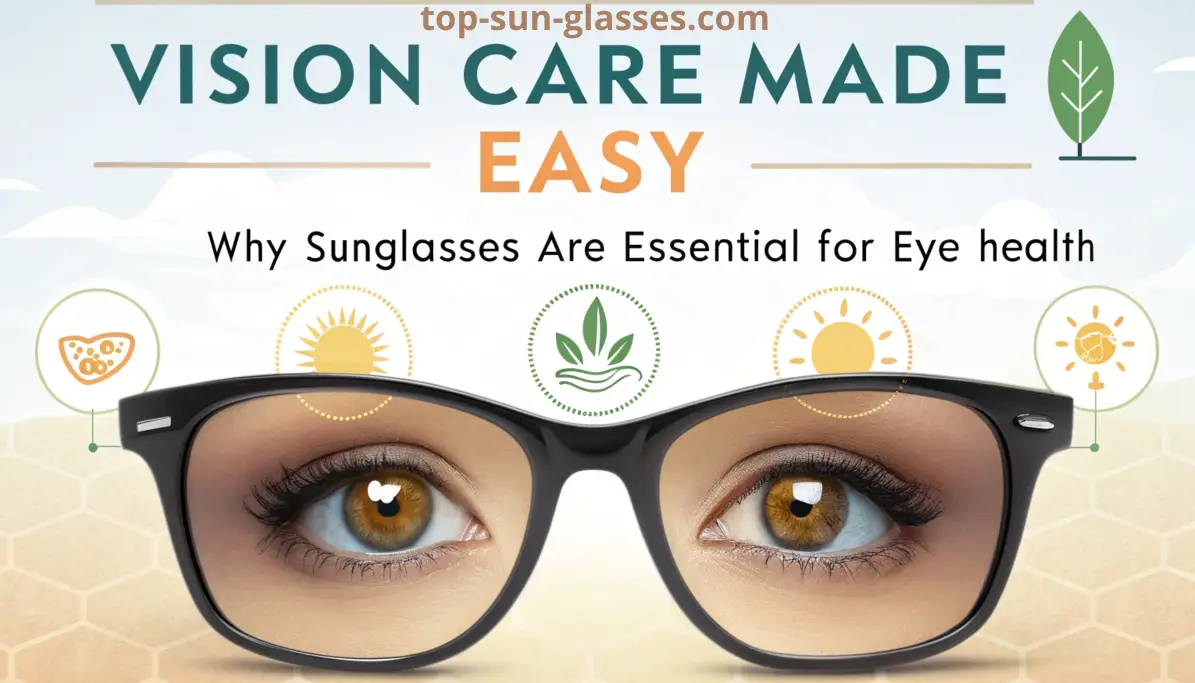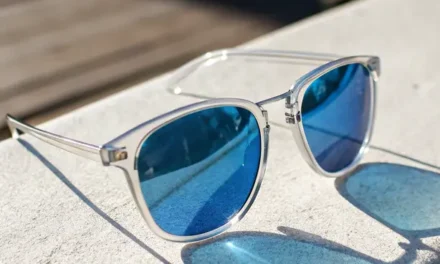Good vision is one of life’s greatest assets, yet it’s often taken for granted. Eye health is a cornerstone of overall well-being, and safeguarding your eyesight involves more than just regular eye exams. One essential yet frequently overlooked factor in maintaining healthy eyes is wearing sunglasses. Proper sunglasses provide more than comfort—they protect your eyes from harmful environmental factors that can affect vision in the long term. This guide will explore the critical role sunglasses play in vision care and why they are an essential accessory for everyone.
Sunglasses are not just for fashion; they are a powerful tool for protecting your eyes from UV rays, glare, and environmental irritants. Whether you spend time outdoors, drive, or work in bright environments, investing in quality eyewear is a step toward maintaining excellent eye health.
Understanding the Impact of UV Rays on Eye Health
Ultraviolet (UV) rays from the sun can harm your eyes. Prolonged exposure to UV radiation can lead to short-term and long-term damage, including eye conditions like cataracts, macular degeneration, and photokeratitis (sunburned eyes). Sunglasses with 100% UV protection act as a shield, blocking both UVA and UVB rays to reduce your risk of these problems.
According to eye care professionals, individuals who spend significant time outdoors are at a higher risk of UV-related eye damage. Wearing sunglasses regularly ensures that your eyes are protected from these harmful rays. Polarized lenses, in particular, offer added protection by reducing glare and improving visual clarity. By prioritizing UV protection, you enhance your comfort and preserve your vision.
How Sunglasses Protect Against Blue Light Exposure
In today’s digital world, blue light exposure has become a growing concern for eye health. While blue light primarily comes from screens, it is also emitted by the sun. Overexposure to blue light can contribute to digital eye strain, headaches, and disruptions in sleep patterns.
Wearing sunglasses with lenses that filter blue light is essential outdoors, particularly in bright environments. Sunglasses with tinted or polarized lenses can reduce the intensity of blue light and minimize its effects on the eyes. By incorporating these specialized lenses into your eyewear, you can protect your eyes and reduce discomfort caused by glare and strain.
Preventing Cataracts and Macular Degeneration with Sunglasses
Cataracts and macular degeneration are two of the most common age-related eye conditions that are exacerbated by UV exposure. Cataracts cloud the eye’s lens, leading to blurry vision, while macular degeneration affects the retina, impairing central vision.
Wearing sunglasses with UV protection significantly reduces the risk of developing these conditions. Research has shown that cumulative UV exposure over time accelerates eye aging. Still, consistent use of sunglasses helps mitigate this effect. Sunglasses are particularly important for individuals over 40, as eye aging progresses more rapidly during this stage of life.
Investing in quality eyewear with UV-blocking lenses is a proactive approach to preserving your eye health and maintaining clear vision well into the future.
The Role of Sunglasses in Preventing Photokeratitis
Photokeratitis, also known as snow blindness, is a painful condition caused by excessive UV exposure to the eyes. Eye damage is typical temporarily in snowy, sandy, or reflective environments where sunlight is intensified. Symptoms include redness, tearing, sensitivity to light, and a gritty eye sensation.
Sunglasses with polarized lenses and UV protection are the best defense against photokeratitis. Whether skiing, hiking, or relaxing on the beach, wearing the right sunglasses minimizes UV exposure and reduces the likelihood of developing this condition. Sunglasses designed with wraparound frames offer even better protection by shielding the eyes from sunlight entering from the sides.
By wearing sunglasses during outdoor activities, you can enjoy your time outside without risking discomfort or damage to your eyes.
Sunglasses as a Shield Against Environmental Irritants
Beyond UV rays, sunglasses protect your eyes from environmental irritants such as wind, dust, and debris. Outdoor activities like cycling, hiking, and driving can expose your eyes to airborne particles that cause dryness, irritation, and redness. Over time, exposure to these elements can contribute to eye strain and discomfort.
Sunglasses with high-quality lenses act as a barrier, reducing the impact of irritants and providing relief for sensitive eyes. Wraparound sunglasses are particularly effective for individuals engaging in sports or outdoor work, as they offer full coverage and protection.
Sunglasses can also help minimize moisture loss for individuals who suffer from dry eyes by shielding the eyes from wind. By incorporating sunglasses into your daily routine, you can keep your eyes healthy and comfortable, even in challenging environments.
Choosing the Right Sunglasses for Vision Care
Not all sunglasses are created equal; selecting the right pair is crucial for maintaining eye health. Here are the key factors to consider when choosing sunglasses:
- UV Protection: Look for sunglasses labeled with 100% UV protection to block UVA and UVB rays.
- Polarized Lenses: These lenses reduce glare, improve visibility, and enhance visual comfort, especially in bright or reflective conditions.
- Lens Tint: Different lens tints offer various benefits. Grey lenses reduce brightness without distorting colors, while brown and amber lenses enhance contrast.
- Frame Style: Wraparound frames provide added protection from sunlight and debris entering from the sides.
- Durability: Opt for sunglasses made from high-quality materials that are scratch-resistant and durable for long-term use.
Choosing the right sunglasses ensures that your eyes receive maximum protection while complementing your style.
Incorporating Sunglasses into Your Daily Routine
Making sunglasses a part of your daily routine is one of the simplest yet most effective ways to care for your vision. Whether commuting, spending time outdoors, or driving, wearing sunglasses regularly helps protect your eyes from UV rays, glare, and environmental elements.
Keep a pair of high-quality sunglasses in your car, handbag, or backpack to ensure they are always within reach. For individuals who wear prescription glasses, prescription sunglasses offer the same level of protection while providing clear vision. Transition lenses are another great option, as they automatically adjust to changing light conditions.
By treating sunglasses as an essential accessory, you safeguard your eye health and enhance your comfort and overall quality of life.
Conclusion: Prioritize Eye Health with the Right Sunglasses
Sunglasses protect against harmful UV rays, blue light exposure, and environmental irritants. In viInoIncare, by consistently wearing high-quality sunglasses, you can prevent eye damage, reduce the risk of common conditions like cataracts and photokeratitis, and enjoy clearer, healthier vision for years to come.
Eye health is invaluable, and investing in sunglasses is a simple yet powerful step toward safeguarding your vision. Whether you are outdoors for leisure, work, or sports, sunglasses are a must-have accessory that combines style and function. Prioritize your eye care today and make sunglasses an integral part of your daily routine.
See more in the American Academy Of Ophthalmology





